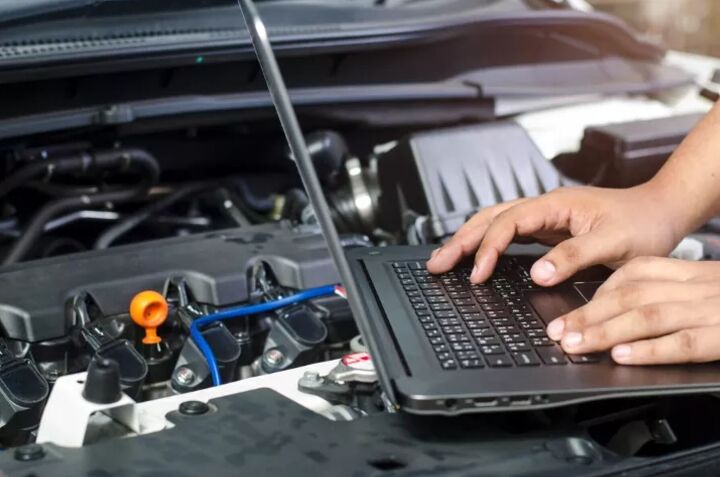NHTSA Tells Auto Industry Not to Comply With Massachusetts Data Laws

The National Highway Traffic Safety Administration (NHTSA) has advised automakers not to comply with a Massachusetts vehicle telematics rule designed to ensure customers have control over what happens with their private data. It’s the regulators' assertion that companies are obligated to enforce federal standards while suggesting that the state law poses safety concerns.
Interestingly, that’s the exact same claim the automotive lobby was making when the Massachusetts law was up first for debate and leaves one wondering who exactly the NHTSA is advocating for.
It’s no secret that various industries attempting to hoard customer data and redefine what constitutes ownership have created a groundswell of consumer resentment. The situation has even led to the right-to-repair movement advocating for purchasers of devices and equipment (including automobiles) to freely modify and repair products — occasionally resulting in localized legislation protecting consumer rights.
In the case of Massachusetts, the 2020 measure sought to allow independent repair shops to access diagnostic data modern vehicles automatically send directly to dealerships and manufacturers. It passed, approved by nearly 75 percent of voters, and requires manufacturers operating within the state to equip modern cars with a standardized open access data platform that allows third parties to access telematics data.
Automakers see the information as invaluable, offering a wealth of data points to help them determine how to build future products, schedule servicing routines, and which parts to order. The Alliance for Automotive Innovation, a trade group representing just about every automaker, even sued to block the Massachusetts law and has likewise asked a federal judge to seek a temporary restraining order barring enforcement of the Data Access Law.
But the opposition has argued that it’s destroying small businesses by making it difficult for consumers to seek repairs outside of certified service centers owned by the relevant dealerships. Arguments have likewise been made that the information should be owned by the customer and that they should be the ones to determine where it goes.
On Wednesday, Reuters reported that the NHTSA had stepped in to tell automakers not to comply with the Massachusetts law. The agency has said that the "NHTSA expects vehicle manufacturers to fully comply with their Federal safety obligations.”
From Reuters:
The NHTSA said a malicious actor "could utilize such open access to remotely command vehicles to operate dangerously, including attacking multiple vehicles concurrently." Massachusetts is seeking to enforce a 2020 ballot initiative that was overwhelmingly approved by voters.
NHTSA added that "open access to vehicle manufacturers’ telematics offerings with the ability to remotely send commands
allows for manipulation of systems on a vehicle, including safety-critical functions such as steering, acceleration, or braking."
However, the above is really more of a problem with vehicular connectivity in general than anything else. If modern vehicles lacked things like over-the-air (OTA) updates or were less reliant on software, this wouldn’t be an issue. The NHTSA seems to be doing little more than protecting the massive companies that have the most to gain by furthering the connectivity agenda.
While it’s rare to see businesses admit to it, automakers understandably want to keep lucrative data for themselves. But they’ve also claimed that opening the door to third parties would require them to remove some of the safety barriers that could make users more vulnerable. That’s debatable when it could be similarly argued they’re already being taken advantage of by the industry. Though it’s not beyond the realm of possibility that malicious actors could take advantage of a more open system.
Massachusetts Attorney General Andrea Joy Campbell said "consumers and independent repair shops deserve to know whether they will receive access to vehicle repair data in the manner provided by the law."
Your author is inclined to agree and would prefer customers have the final say on what happens with their data. The value of the information being amassed by the industry cannot be understated and it has certainly helped automakers evolve.
Still, there needs to be a discussion about who has the right to control that data and what exactly constitutes ownership. Having purchased a product seems as though it should be the threshold. But the lines are getting blurry, with corporate actors and the federal government seemingly at odds with the rights of ordinary people.
[Image: CAT SCAPE/Shutterstock]
Become a TTAC insider. Get the latest news, features, TTAC takes, and everything else that gets to the truth about cars first by subscribing to our newsletter.

A staunch consumer advocate tracking industry trends and regulation. Before joining TTAC, Matt spent a decade working for marketing and research firms based in NYC. Clients included several of the world’s largest automakers, global tire brands, and aftermarket part suppliers. Dissatisfied with the corporate world and resentful of having to wear suits everyday, he pivoted to writing about cars. Since then, that man has become an ardent supporter of the right-to-repair movement, been interviewed on the auto industry by national radio broadcasts, driven more rental cars than anyone ever should, participated in amateur rallying events, and received the requisite minimum training as sanctioned by the SCCA. Handy with a wrench, Matt grew up surrounded by Detroit auto workers and managed to get a pizza delivery job before he was legally eligible. He later found himself driving box trucks through Manhattan, guaranteeing future sympathy for actual truckers. He continues to conduct research pertaining to the automotive sector as an independent contractor and has since moved back to his native Michigan, closer to where the cars are born. A contrarian, Matt claims to prefer understeer — stating that front and all-wheel drive vehicles cater best to his driving style.
More by Matt Posky
Latest Car Reviews
Read moreLatest Product Reviews
Read moreRecent Comments
- Theflyersfan With sedans, especially, I wonder how many of those sales are to rental fleets. With the exception of the Civic and Accord, there are still rows of sedans mixed in with the RAV4s at every airport rental lot. I doubt the breakdown in sales is publicly published, so who knows... GM isn't out of the sedan business - Cadillac exists and I can't believe I'm typing this but they are actually decent - and I think they are making a huge mistake, especially if there's an extended oil price hike (cough...Iran...cough) and people want smaller and hybrids. But if one is only tied to the quarterly shareholder reports and not trends and the big picture, bad decisions like this get made.
- Wjtinfwb Not proud of what Stellantis is rolling out?
- Wjtinfwb Absolutely. But not incredibly high-tech, AWD, mega performance sedans with amazing styling and outrageous price tags. GM needs a new Impala and LeSabre. 6 passenger, comfortable, conservative, dead nuts reliable and inexpensive enough for a family guy making 70k a year or less to be able to afford. Ford should bring back the Fusion, modernized, maybe a bit bigger and give us that Hybrid option again. An updated Taurus, harkening back to the Gen 1 and updated version that easily hold 6, offer a huge trunk, elevated handling and ride and modest power that offers great fuel economy. Like the GM have a version that a working mom can afford. The last decade car makers have focused on building cars that American's want, but eliminated what they need. When a Ford Escape of Chevy Blazer can be optioned up to 50k, you've lost the plot.
- Willie If both nations were actually free market economies I would be totally opposed. The US is closer to being one, but China does a lot to prop up the sectors they want to dominate allowing them to sell WAY below cost, functionally dumping their goods in our market to destroy competition. I have seen this in my area recently with shrimp farmed by Chinese comglomerates being sold super cheap to push local producers (who have to live at US prices and obey US laws) out of business.China also has VERY lax safety and environmental laws which reduce costs greatly. It isn't an equal playing field, they don't play fair.
- Willie ~300,000 Camrys and ~200,000 Accords say there is still a market. My wife has a Camry and we have no desire for a payment on something that has worse fuel economy.


































Comments
Join the conversation
This administration is astoundingly evil.
MA here….the ballot initiative passed here by a decent margin supporting data privacy. The opposing side flooded the airwaves with commercials making the whole “they’ll be able to remotely control your vehicle!” BS. Many of the people featured on those ads were your typical DC “lifers”. Seems they finally got their way using this administration to overturn the people’s vote…..